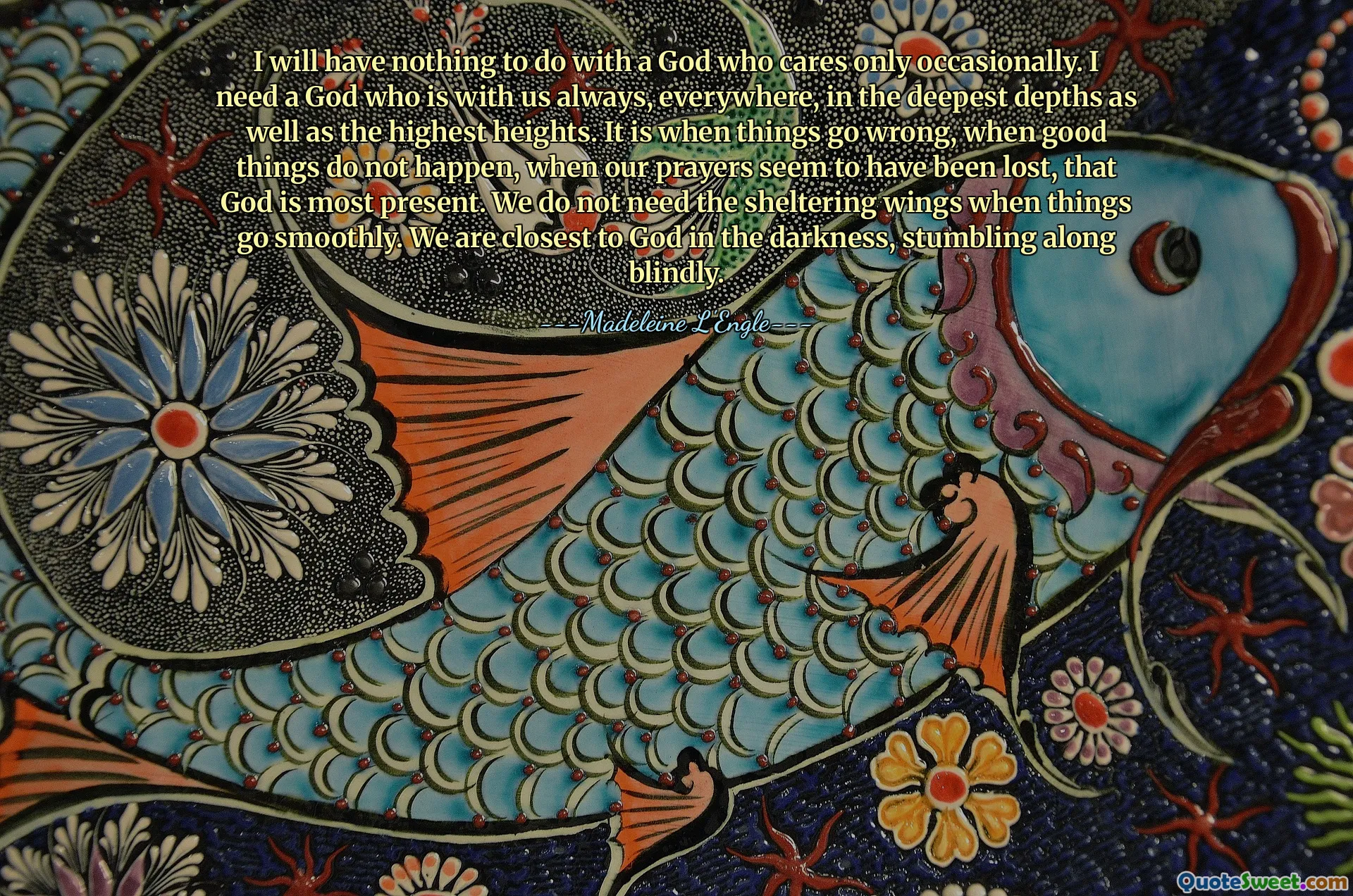
I will have nothing to do with a God who cares only occasionally. I need a God who is with us always, everywhere, in the deepest depths as well as the highest heights. It is when things go wrong, when good things do not happen, when our prayers seem to have been lost, that God is most present. We do not need the sheltering wings when things go smoothly. We are closest to God in the darkness, stumbling along blindly.
This quote captures a profound understanding of the divine presence in everyday life, especially during challenging times. It challenges the notion that God’s presence is reserved for moments of joy or success, instead emphasizing that true divine closeness is felt precisely in our darkest, most uncertain moments. Often, comfort is found in the belief that we are accompanied and supported at all times, not just when everything is going well. This idea aligns with many spiritual traditions that speak of divine immanence—the divine’s constant presence within the world and our lives. It invites us to reframe our perception of adversity, considering struggles not as signs of divine abandonment but as times when divine presence is most tangible. When prayers seem unanswered or silence envelops us, it may be a sign that we are learning to listen deeper, to find hope in uncertainty, and to recognize that resilience and faith are strengthened amid difficulties. The metaphor that we are closest to God in darkness underscores a universal truth—that growth and true understanding often manifest in moments of hardship. It encourages a shift in perspective, urging us to see darkness not as a void but as a space where divine love and support can be most profoundly felt. This perspective reduces fear and fosters trust, reminding us that we are never truly alone, regardless of circumstances. Embracing this concept transforms how we approach suffering and uncertainty, turning them into opportunities for deeper communion with the divine.
---Madeleine L'Engle---







